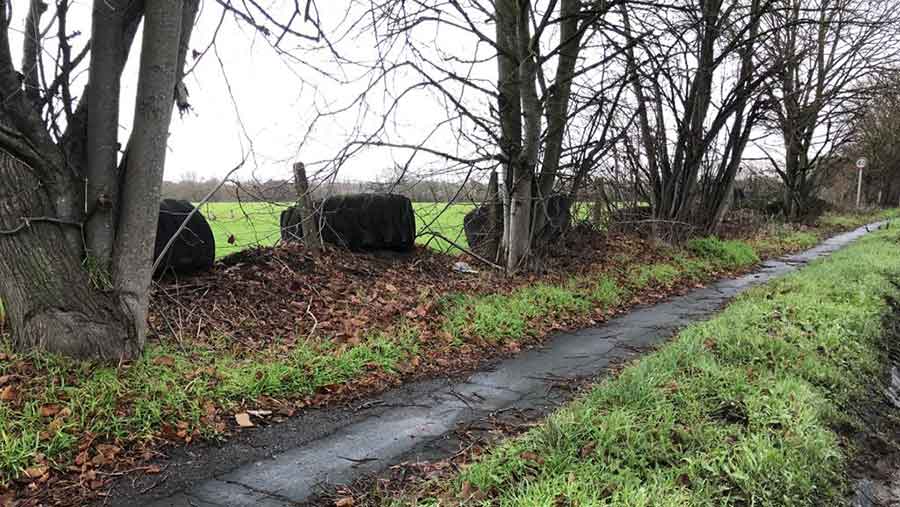Editor’s view: Council meddling exposes farm to crime threat
 © J Rayner & Sons
© J Rayner & Sons There are not many weeks that go by where farmers don’t chafe under one limit to their freedom or another.
The concept of freedom means different things to different people, but it can be defined as the right to do as you please up until the point where it prevents someone else doing as they please – which is where laws come in to balance competing interests.
See also: Editor’s view: FW and OFC aims: Debate, challenge, entertain
I take a tolerant view of many rural rules as most have been imposed with the right intentions, at least, and a perception that farmers can act how they like will hardly improve our public standing.
Yet this week’s baffling news that Buckinghamshire farmer Colin Rayner has been told by the council to remove the concrete blocks and tyres bordering some of his fields is a clear example of senseless bureaucracy in action.
The request was made using the powers granted to the council under section 215 of the Town and Country Planning Act, which gives it the right to have land cleaned up when its condition adversely affects the amenity of the area.
A noble aim, but the use of these powers is entirely discretionary; no councillor was compelled to act in this nonsensical manner, but they did so anyway.
Not just nonsensical, but ignorant.
The councillor quoted in the article goes on to state that
“The council has raised concerns that allowing one farmer to use this method is likely to spread to other farmers across not only Buckinghamshire, but also the rest of the country.”
As most readers will know, the practice of barring gateways with concrete blocks has been common in many parts of the country since at least the 1970s, when it was needed to discourage land occupation.
So that horse hasn’t just bolted, it has found a partner, settled down, raised a family, had a second career in carriage driving and peacefully retired to the Norfolk Broads without this councillor managing to find time to catch up with reality.
Indeed, the practice is so well known, it wouldn’t surprise me if, in a few years, there were some gate barriers with listed status, a blue plaque nearby and a converted horsebox selling coffee.
Worst of all, this attempt to balance the needs of Mr Rayner with those of the public to have an unfettered view of the countryside has failed to take account of his right to protect himself from crime.
These barriers are not recreational, they are a desperate bid by farmers to prevent crop damage, discourage theft and protect wildlife on farms they have had to turn into fortresses to stem the tide of rural criminality.
If Buckinghamshire Council needs reminding of how bad rural crime is, it only has to consider the fact that Thames Valley Police, which covers its patch, saw fit to create a rural crime task force last year that recovered £1m in stolen property in just seven months.
The right of the individual to have a countryside stroll without being offended by the sight of a set of elderly 460/85 R38s seems puny by comparison.
Freedom is a messy business at the best of times and good compromises that leave both sides moderately disgruntled are often where justice is to be found.
So here’s my compromise proposal to the council: If you want farmers to take down their barricades, how about you end the fly-tipping scourge first as a gesture of goodwill.
Cashback Commodity Competition

Sponsored by Farmplan
Be in with a chance of winning £50!
Each week in the Farmers Weekly Podcast, Johann & Hugh will pick a farm commodity (wheat, milk, beef etc) and ask listeners to text FARM to 88440 followed by their prediction for the price of that commodity the following week.
The winner is the listener who guesses closest to the number, as published in Farmers Weekly magazine on that Friday.
All correct entries will be put into a draw and the winner will be drawn at random by the Farmers Weekly Podcast hosts.
The winner must answer when called or the next nearest winner will be chosen and contacted.
Please read the terms and conditions for entering this competition.

